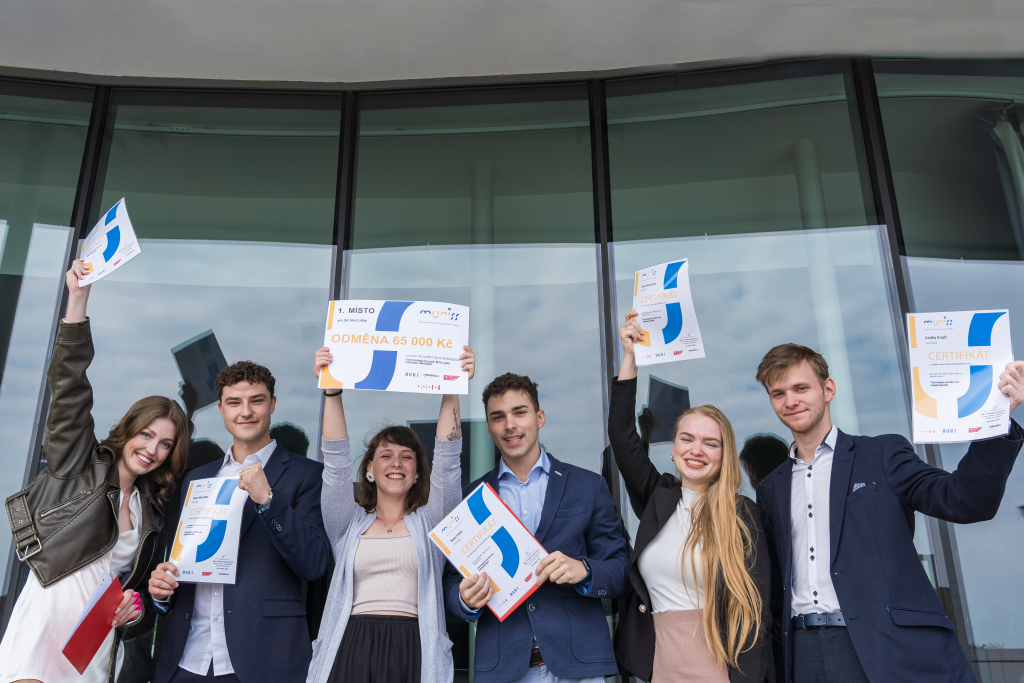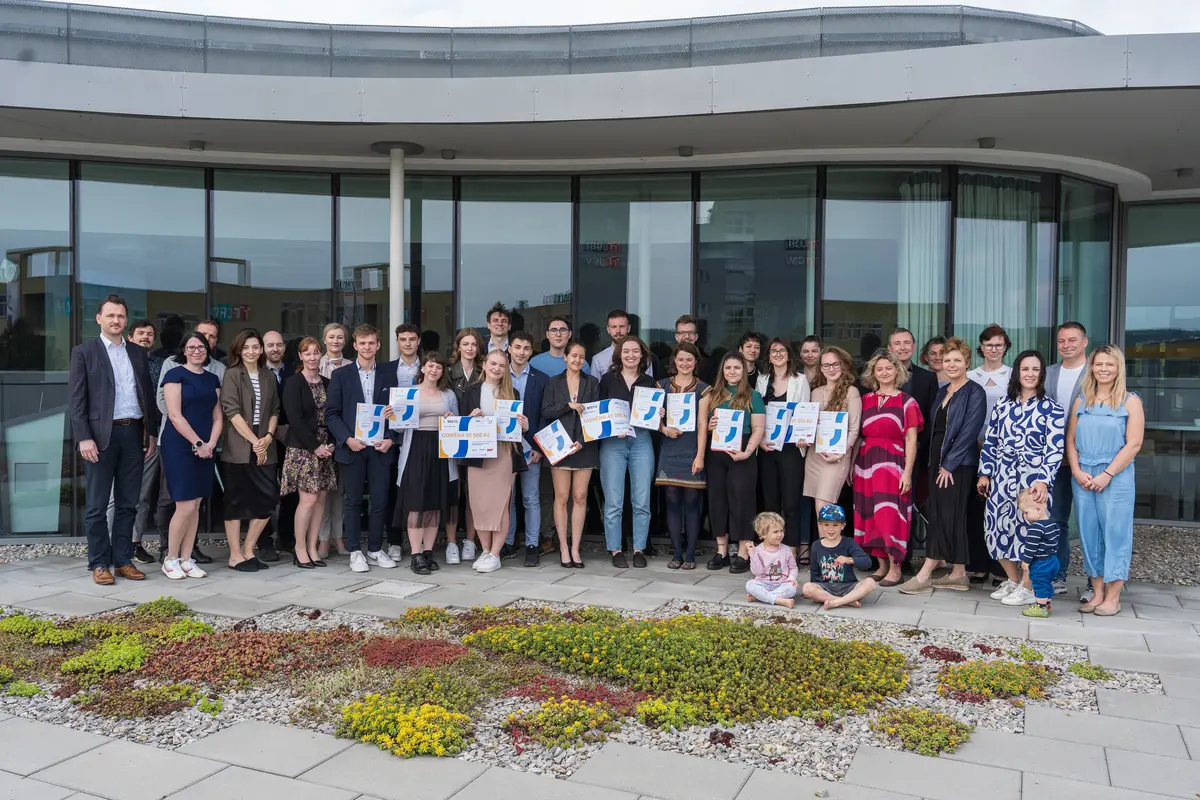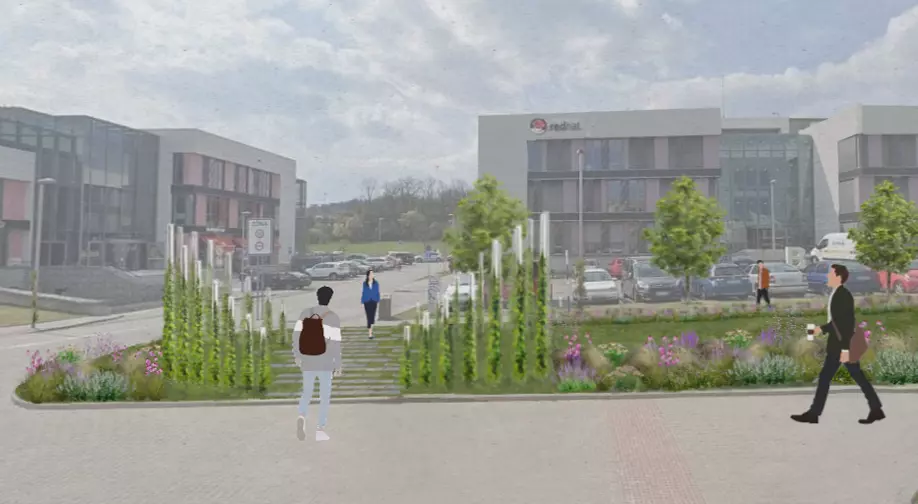For some time now, Brno has involved local university and college students in thinking about the city’s development. In the latest 12th edition of the MUNISS Inter-University Student Competition, contestants proposed intelligent solutions for the Brno Technology Park.

Brno is developing with more than just the next few years in mind. They are also thinking about a time we can hardly envision today—when today’s students will be employees, parents or grandparents. And will deal with the joys and sorrows associated with these roles.
Therefore young people should know the city’s needs today. And that they strive for its further development. The MUNISS inter-university competition provides an opportunity annually to involve young women and men from three Brno universities – Masaryk, Mendel and the Brno University of Technology. They deal with Brnos’ hot topics, and in return, they gain practical experience. Moreover, they use knowledge and gain a better understanding of Brno. The city where they can live and prosper in future. And the city provides a financial award for all teams.

This year, the focus of MUNISS was on how to develop the territory of the Brno Technology Park. The city uses the home of innovative companies and research centres as a so-called urban laboratory. Consequently, in cooperation with park management, the city tests and implements intelligent solutions. Therefore, the task for the MUNISS competition was to evaluate existing smart technologies and propose new and innovative ones.
The contestants were divided into three teams so that the final line-up included people studying different domains. It is this diversity that regularly brings added value. For six months, each group worked on an original concept. The members consulted with experts from the City, the Technology Park, and individual universities. In the meantime, they also went on an inspirational trip to Vienna.
Students should integrate all four issues into their concepts: Circular economy, locality’s energy efficiency, Environmental quality in the common areas of the buildings and the ecological quality of exteriors.
The expert jury chose the best project by the “NEXT LABel” team, which focused more closely on the issue of the circular economy. The team proposes water retention through green tramlines or solar energy from a circular café in their work. For the winning project, the jury also praised the placement of greenery on the roof of the tram stop or the design of a new entrance to the site, including a perennial bed that resists drought and sunlight.
The winning team of economics, international and environmental studies and architecture students received Brno 65 thousand crowns. The expert jury liked not only the elaboration of the concept focusing on the circular economy. Moreover, the jury praised the coherence and concept structure, deep analysis based on the questionnaire survey and the number of well-thought-out feasible ideas.
And now, what happens to the winning proposal? While neither the City nor the Technology Park is obligated to follow it, why should an excellent piece of work end up in a drawer somewhere?
“Smart exterior solutions linked to the use of the circular economy have produced innovative proposals that the company will be looking into in the coming months and plans to implement many of them,” said Jitka Sládková, Marketing Director of the Brno Technology Park and one of the jury members.

Since 2011 the Brno City Municipality has co-organised the MUNISS competition with local universities. The leading partner is the Faculty of Economics and Administration of Masaryk University. MUNISS regularly starts during the autumn semester, and the results are evaluated in the spring. As a rule, three inter-university and interdisciplinary teams of five to seven members compete against each other.
The past twelve years have brought Brno many inspiring ideas, especially regarding the “Smart City” area. For example, students have devised ideas on how to use the Špitálka area temporarily. The City is transforming this locality into an innovative district. They have also helped find a new function for the formerly agricultural area behind Zetor, revitalising Brno’s brownfields or densifying the City in unused spaces, such as vacant lots or inner city areas.
The involvement of students can continue after submitting their proposals to the City and hearing the results announced. For example, that has happened in the case of the Spitalka site. Thus, some of the contestants organised an exhibition on the streets of the City, through which they also presented the site’s future to the general public. So we will see what fate awaits the proposed innovations in the Brno Technology Park.
During the summer holidays, the city representatives will choose the competition theme for the following year. Organisers will open student registration on the competition website at the end of September.